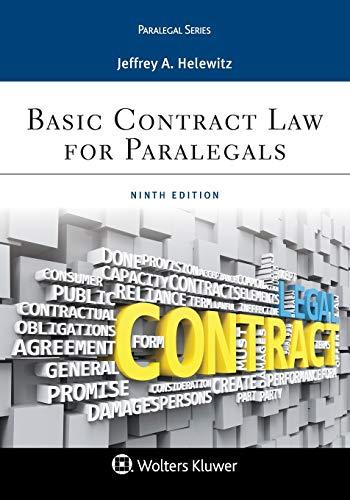Defendant CitiMortgage has filed a motion to dismiss Dorothy Levey and Moses Hyles Fourth Amended Complaint (the
Question:
Defendant CitiMortgage has filed a motion to dismiss Dorothy Levey and Moses Hyles’ Fourth Amended Complaint (the ‘‘Complaint’’), which alleges violations of the Fair Housing Act (‘‘FHA’’), 42 U.S.C. §3601-19, and the Equal Credit Opportunity Act (‘‘ECOA’’), 15 U.S.C. §§1691-91f. Compl. ¶1.
Plaintiffs additionally bring a statutory claim under the Illinois Consumer Fraud and Deceptive Business Practices Act (‘‘ICFA’’), and Illinois common law claims of unconscionability and breach of fiduciary duty under the court’s supplemental jurisdiction. See Compl. Hyles’ claims are brought against Mark Diamond, the individual who allegedly perpetrated the fraud against him, and CitiMortgage, Inc., the assignee of the loan brokered by Diamond and originally funded at closing by Delta Funding Corporation (‘‘Delta’’). Levey’s claims are brought against CitiMortgage, the reputed assignee of a loan originated by BNC Mortgage (the ‘‘BNC Loan’’). Id.
In the Complaint Hyles specifically alleges that after entering into a series of loans over several years to pay various expenses he received a number of telephone calls from a representative of Diamond’s firm inquiring whether Hyles wished to refinance his existing loan in order to have ‘‘extra money’’ to ‘‘re-do [his] bathroom and . . . kitchen.’’ Compl. ¶¶27, 28. Subsequently, Diamond introduced Hyles and his wife to the mortgage lender Delta. Compl.
¶32. Hyles and his wife entered into a mortgage agreement (the ‘‘Mortgage’’)
with Delta, the proceeds of which Hyles claims he never received. Compl.
¶¶30, 35. At an unspecified time the Mortgage was assigned to CitiMortgage, which is currently collecting on it. Compl. ¶¶5, 47, 83.
Levey avers that on February 20, 2002 she and her husband Dan Levey unknowingly signed papers for a mortgage loan from BNC Mortgage for
$73,950 which they believed to be a debt-consolidation loan (‘‘BNC Loan’’).
Compl. ¶¶9-10. At the closing, Levey paid a variety of fees including a
‘‘yield-spread premium’’ which she allegedly did not agree to. Compl. ¶¶12-
16. Levey further states that BNC Mortgage ‘‘granted, bargained, sold, assigned, transferred or set over the Levey Mortgage to’’ CitiMortgage.
Compl. ¶17.
CitiMortgage attaches various documents to its motion to dismiss which it maintains are properly before the court, and which show that Levey and her husband entered into a separate and succeeding mortgage loan in January 2003 with First National Bank of Arizona (‘‘First National Loan’’). Mot. 2, Ex. B. CitiMortgage asserts that it is the assignee of the First National Loan, not the BNC Loan that is the focus of Levey’s allegations. Mot. 3, Ex. C, D.
II. Analysis A. FHA Claim (Count V) [Omitted]
B. ECOA Claim (Count VI) [Omitted]
C. Illinois Common Law Unconscionability (Count I)
CitiMortgage argues that Hyles’ common law unconscionability claim should be dismissed because Hyles has not alleged facts sufficient to establish that the Mortgage (1) was ‘‘so one-sided that only one under delusion would make [it] and only one unfair and dishonest would accept [it],’’ or (2) that ‘‘some impropriety during the formation of the contract . . .
deprived one party of meaningful choice.’’ Mot. 4. The court disagrees and denies CitiMortgage’s motion to dismiss Count I of the Complaint, finding that Hyles has pled facts sufficient to support a finding of unconscionability.
In Illinois, a finding that an agreement is unconscionable ‘‘may be based on either procedural or substantive unconscionability, or a combination of both.’’ Kinkel v. Cingular Wireless LLC, 857 N.E.2d 250, 263 (Ill. 2006).
Substantive unconscionability ‘‘concerns the actual terms of the contract and examines the relative fairness of the obligations assumed.’’ Kinkel, 857 N.E.2d at 267. ‘‘Procedural unconscionability consists of some impropriety during the process of forming the contract depriving a party of a meaningful choice.’’ Id.........
Questions 1. According to the defendant, what must be alleged to constitute a claim of unconscionability?
2. Differentiate between procedural and substantive unconscionability.
3. How does this relate to mortgage fraud claims?
Step by Step Answer:






